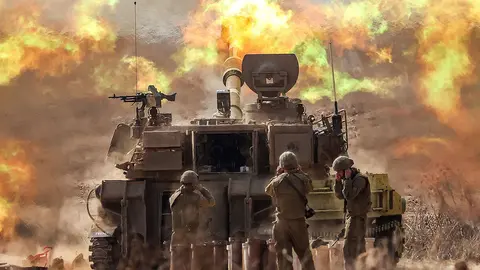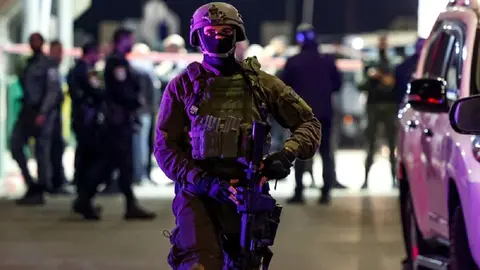Blow to Hamas leadership: Israeli air strike kills Hamas's number two in Beirut

The war between Israel and Hamas continues to escalate and raise regional tensions following the assassination in Beirut of Saleh al-Arouri, the Islamist group's number two. Al-Arouri was eliminated in an Israeli drone strike along with other Hamas members in the Beirut suburb of Daniyeh, Hezbollah's stronghold in the Lebanese capital.
Al-Arouri was vice-chairman of Hamas' political bureau and founder of the al-Qassam Brigades, the organisation's armed wing. The organisation's number two, second only to Ismail Haniyeh, he played a key role in Hamas's expansion into the West Bank, where he orchestrated numerous attacks against Israel. Al-Arouri, 57, also had strong links to Hezbollah and the Iranian Revolutionary Guard.
He lived in Damascus until 2011, when Hamas sided with the opposition to President Bashar Al-Assad during the civil war. From Syria he moved to Turkey, although he had to leave the country in 2018 after Ankara expelled several Hamas members in order to improve relations with Israel. Al-Arouri eventually settled in Beirut, where he worked to strengthen relations between Hamas and Hezbollah, as well as to reconcile with al-Assad.
Al-Arouri has been a target for Israel for years. However, Israeli officials tell Axios, Jerusalem did not want to eliminate him in Istanbul and later in Beirut so as not to damage relations with Turkey and avoid provoking Hezbollah.
A senior Palestinian official was killed in the explosion in the Beirut suburb of Dahiyeh, two security sources tell Reuters. https://t.co/2yCSXoymsW
— Emanuel (Mannie) Fabian (@manniefabian) January 2, 2024
All that changed after the 7 October attack, a massacre that has been described by Israeli intelligence services as the Munich of the time, a reference to the terrorist attack at the 1972 Olympics, when members of the Black September group killed nearly a dozen Israeli athletes in the German city.
"In Gaza, in the West Bank, in Lebanon, in Turkey, in Qatar, everywhere. It will take us a few years but we will destroy Hamas," said Shin Bet intelligence agency chief Ronen Bar last November. Israeli Prime Minister Benjamin Netanyahu has also ordered the Mossad to hunt down the Islamist organisation's leaders around the world.
#BREAKING: Explosion heard in Beirut. Initial reports of a drone attack. A strike this deep in #Lebanon would represent a considerable escalation in #Israel's campaign against #Hezbollah. Video coming in below. pic.twitter.com/2uByiFI08z
— Jason Brodsky (@JasonMBrodsky) January 2, 2024
The death of Al-Arouri, one of the architects of 7 October, was a major blow to the Hamas leadership. The vice-chairman of the political bureau is the highest-ranking leader to be killed since 7 October, and Israel is bracing itself for possible retaliation by Hezbollah, which has been launching attacks on Israeli territory since the start of the war.
The Iranian-backed Lebanese Shiite group has already assured that al-Arouri's assassination will not "go without retaliation or punishment". Israeli sources told Axios that they are concerned that Hezbollah will intensify its attacks and launch long-range missiles at major cities such as Haifa and Tel Aviv. "Such an attack could provoke a much stronger reaction from Israel that could quickly degenerate into a regional war," Axios notes based on the sources.
Reported video showing the explosion that killed Saleh al-Arouri in Beirut. pic.twitter.com/1b4BbEygZy
— Joe Truzman (@JoeTruzman) January 2, 2024
For the time being, Hamas has already announced to Egyptian and Qatari mediators that it will suspend current negotiations concerning the more than 100 Israeli hostages still held hostage in the Gaza Strip. Hamas leader Haniyeh called the attack a "flagrant crime" and a "violation of Lebanese sovereignty".
Acting Lebanese Prime Minister Najib Mikati also condemned the attack, calling it an "Israeli crime" aimed at dragging Lebanon into the war in Gaza.










